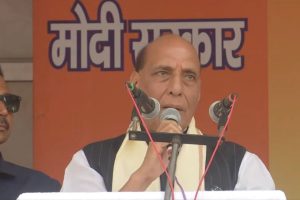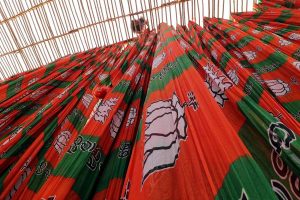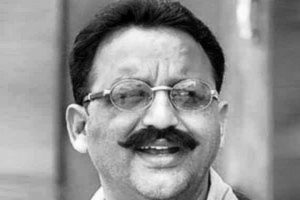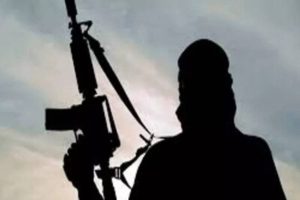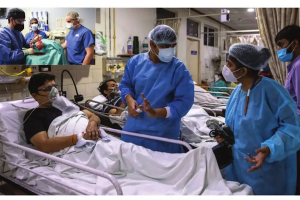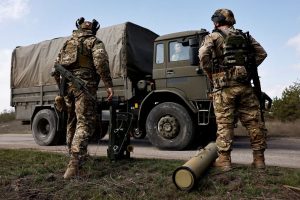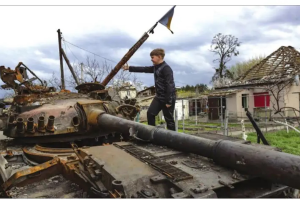The first twenty years of the twenty-first century have seen the world change beyond recognition. The world order has changed; Europe is yielding place to Asia in power and wealth. Citizens’ lives in all corners of the world are now markedly different; social media has made people the world over more connected and aware of each other. The virtual world has all but overtaken the real world in importance.
However, all governments still want to have the same power over citizens’ lives that they had in the nineteenth century, while citizens would like governments to confine themselves to essential tasks like defence and foreign affairs and currency management. The dissonance between what Governments believe is good for citizens and what citizens themselves think is good for them, has been the cause for bitter conflicts in all corners of the world.
In the not very distant past, we had civil resistance movements based on popular opposition to one-party rule that led to the fall of Communist regimes in East Germany, Czechoslovakia, Romania, Hungary, Bulgaria and Poland in 1989 and succeeding years. However, the twenty-first century is unique that it had a number of citizens’ movements that were almost exclusively created and nurtured by social media ~ and most of them were in democratic countries!
Very often, like-minded people form groups on social media to share information and opinions, which approximates a meeting in the real world. Social networking sites like Twitter, which has 55 million users, can instantaneously disseminate short messages to everyone who would care to see them. Messaging applications like WhatsApp, that has two billion users, provides encrypted communication across continents, enabling users to share their thoughts instantaneously through messages, pictures and videos.
One can, therefore, say that digital technologies and other forms of communication ~ videos, cellular phones, blogs, photos, emails, and text messages ~ have ushered in an era of ‘digital democracy.’ The ongoing Black Lives Matter protests, which has seen more than 30 deaths, has been nurtured almost exclusively by social media, in the face of President Trump’s rants, who would like to treat the Black Lives Matter (BLM) movement as a law and order problem started by troublemakers and not as a citizens’ reaction to racist police.
Social media recorded BLM protests, spread information, promoted donation sites, and posted memorials to George Floyd. A petition titled “Justice for George Floyd,” on Change.org got 13 million signatures. The ferment in Hong Kong for the last two years has drawn sustenance from social media and made citizens even more determined to throw off China’s restrictive yoke. Social media fuelled the Paris unrest over ‘heavy-handed’ treatment of ethnic minorities by the French police during the coronavirus lockdown.
Closer home, social media played an important part in the prolonged sit-downs over the Citizenship Amendment Act which ended only with the advent of the coronavirus pandemic. Wary about the power of social media, the Union Government has restricted internet use in the Union Territory of Jammu and Kashmir for the past one year. It may be instructive to investigate the ultimate outcome of movements fostered by social media.
The Arab Spring movement was probably the first prodemocracy movement that used social media and digital technologies to circumvent state-operated media channels, organise protests and support collective action through Facebook pages. Mainstream electronic media devices ~ cell phones, emails, and video clips were used to spread word about the protests to the outside world. In the first instance, governments shut down sites like Facebook or blocked Internet service entirely, especially before a major rally.
Governments also targeted members of Facebook groups by charging them with unrelated crimes. However, the protestors were not deterred, more groups were created and more posts were shared. Later on, Arab Spring demonstrators were met with violent responses from authorities, as well as from pro-government militias and counter-demonstrators and militaries. The Arab Winter followed; supporters for democracy in most Muslim-majority states were overwhelmed by the religious elite.
Only the uprising in Tunisia resulted in a transition to a constitutional democratic government. However, democratic movements have not been totally defeated; multiple uprisings and protest movements continue in Algeria, Sudan, Iraq, Lebanon and Egypt. An unfortunate aftermath is that countries like Syria, Libya, Yemen, and Lebanon, have been plunged into devastating internecine conflicts. Social media ensured that the world took early notice of the Arab Spring; Tawakkol Karman of Yemen was a corecipient of the Nobel Peace Prize 2011, for her role in organizing peaceful protests.
“The Protester” was nominated as the “Person of the Year” by the Time magazine in 2011. However, in England, protests against the police killing of a black man, Mark Duggan, which were orchestrated by social media had a totally different outcome; the movement soon degenerated into the London Riots of 2011. The rioters used Twitter and Facebook to disseminate volatile content, while looting strategies were finalised through the highly encrypted Blackberry Messenger.
Ultimately, social media proved to be the undoing of the rioters; police identified looters by their pictures and posts on social media. Currently, in India, we have a surfeit of activism on social media with WhatsApp being the preferred platform, but genuine public issues often take a backseat with people freely airing their prejudices and pet peeves and even discussing murder and mayhem on social media. Then, there is no authenticity to the posts on social media which are derisively described as emanating from the ‘University of WhatsApp’ or ‘WhatsApp Gyan.’
The political importance of social media can be gauged from the fact that all world leaders, including our PM, are on Twitter and make most of their important announcements on this platform. But, in the Indian context, does social media promote or protect liberal values? Not particularly, because democratic and constitutional values are yet to be fully integrated in the Indian psyche. For example, the police ‘encounter’ of Vikas Dube was welcomed by more than ninetynine percent of social media users. Instead of informed discussion, social media is mostly used to vehemently propagate views on communal and/or party lines.
To muddy the discourse further, political parties operate state-ofart facilities where well-paid men and women articulate posts on social media with the aim of canvassing a particular point of view and/or defaming political opponents; misquoting historical documents, morphing photographs and distorting videos has become routine in this process. Such incendiary posts are widely shared on Twitter, WhatsApp and similar platforms by other paid workers, often convincing the average user of the veracity of such posts, by sheer repetition.
We also have social media warriors or ‘trolls,’ whose main occupation is to hound people not subscribing to their point of view. The unfortunate person who comes in the cross-hairs of ‘trolls’ is often bullied till he quits the platform, mostly with his reputation in tatters. Finally, love it or hate it, but no one can ignore social media, which has a life of its own, with a totally different set of priorities. From the profound to farcical, mostly the latter, everything is freely available on social media.
Daniel Howell, the YouTuber with six million subscribers, put things in perspective when he said: “These days, in the world of apps and social media and … idiot friends, it is literally impossible to avoid spoilers. If a character dies, it is gonna be the number one trending topic on Twitter, it is gonna be the top trending story on Facebook ~ and Reddit and Tumblr just turn into a completely uncensored memorial service of memes. This happens all the time with sports results, … I once got a notification from the BBC News app saying that a character in a show I was watching had just died! I thought that news notifications are supposed to be for impending natural disasters, not for just ruining my bloody afternoon.” Probably, this is the ultimate reality of social media.
(The writer is a retired Principal Chief Commissioner of Income-Tax)


